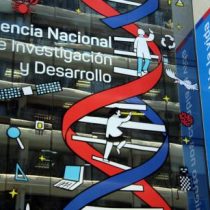
The overseas master’s and doctoral programme is at a critical stage, heightened by the global pandemic. In addition to the cancellation of these programs, it is added that there are a significant number of students who have not been able to complete their studies as a product of COVID 19. The ANID refuses to provide an extension of the scholarship for these cases. There are other students who have nevertheless managed to complete but are now facing forced return to Chile in a context of global health crises that have particularly affected the labour market. It is in this last situation that I would like to focus.
The remuneration of the Chile Scholarship program is one of its angular and most controversial points. Its definition seems extremely radical and devoid of explicit logic. While in the application process the applicant must include how the country will eventually be remunerated, this remains in the role and field of longings, as there is no verification that these objectives are met after return.
In the bases of the competition, on the other hand, remuneration is defined as the stay in national territory for twice the duration of the scholarship, in the case of those residing in the Metropolitan Region, and for the same period of duration of the scholarship for those living in regions, being able to leave the country for short periods and “only sporadically”. This must be corroborated by a travel certificate issued by the National Foreign Office or the POI. No explanation is given as to how these periods were determined. It is also not set out to what extent or on the basis of what evidence a forced stay on national soil of between 4 and 8, or even more years, would be beneficial to the country. It is assumed that by the mere fact of being he is contributing.
Comparatively, there are economic crimes that have more flexible and low penalties than the remuneration of these scholarships, and in Chile we know about that. Remuneration thus resembles more of an order of national roots than a nation project.
The development of a serious policy regarding the immediate and long-term benefit that the country can gain from the formation of advanced human capital becomes critical and urgent. In this sense, a real definition of what the country seeks and understands as remuneration, i.e. establishing the epidemic framework of the matter, is required. According to the DEFINITION of the SAR, a remuneration is the reward or payment for something. In those terms, the payment to study a master’s or doctorate cannot be, in any light, the cloistering, or the restriction of a person to choose his residence and that of his family in the country he pleases, less considering that there is no crime involved. It is too high a cost that even refers us to the symbology of the body as a currency of exchange for intellectual development and to the state as the de facto owner of the student and his knowledge.
Following this, a flexibility of what I would call forced territorial presence, or order of academic roots, is needed. If there is one thing we have learned from COVID 19 it is that physical presence is not a condition for the transmission of ideas. Focusing everything on the permanence of the scholarship in Chile implies not understanding the dynamics of generation and exchange of knowledge in a globalized world.
It would be much more effective in these cases to offer a combination of different strategies that encourage research and dissemination of knowledge by targeting different segments and platforms, where fellows negotiate with the State their own initiatives. The return to Chile should also be offered as an option within a range of possibilities, but with a concrete project that allows mainly the use by the public system of the knowledge and experience acquired by these fellows.
Under no circumstances is this about the evasion of a responsibility to which all scholarships commit ourselves by signing the scholarship agreement. On the contrary, it is a question of looking for varied outings within a world in constant definition. This is a work that implies, in its broadest sense, rething the relevance of physical presence as the main indicator that validates the work of researchers, academics and scientists.
The content poured into this opinion column is the sole responsibility of its author, and does not necessarily reflect the editorial line or position of El Mostrador.
"El reclamo puede ser genuino, pero construido sobre una mentira", apuntó el presidente Javier Milei…
El gobernador de la provincia de Buenos Aires, Axel Kicillof, encabezó un acto en Ensenada…
El diputado nacional de La Libertad Avanza, José Luis Espert, expresó su confianza en la…
Tras la masiva reaparición de Cristina Fernández de Kirchner, el presidente Javier Milei apuntó contra…
El principal propósito de la nueva comisión es evaluar los recursos humanos en el Senado,…
En una medida que busca redefinir las condiciones de los seguros de automóviles en Argentina,…
Esta web usa cookies.